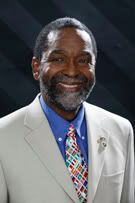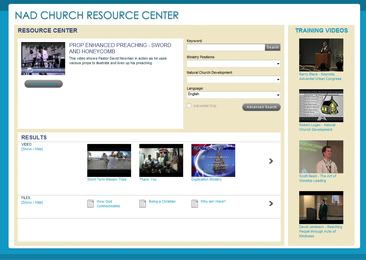|
|
|
|
 Editorial Editorial  |  | | |  It's not often that we get direct feedback from the One to whom our worship is directed. Reading the sobering words of Isaiah 1:11-17 makes me wonder what we might hear if God did offer an evaluation of our gatherings. Through Isaiah's prophetic diatribe, God makes His sentiments clear: He "hates" (1:14) His people's festivals and feasts. He considers their offerings "worthless" (1:13) and their assemblies a "burden" (1:14). Unlike the factors that generally shape our appraisals of corporate worship, God takes issue in Isaiah 1 not with the quality of the music, the artistry of the pageantry, or the caliber of the preaching - all of which may well have been excellent by our standards. God is displeased because of those who are ostensibly left out of the worship gathering: "...your hands are covered with blood," He says. "Wash yourselves, make yourselves clean; remove the evil of your deeds from my sight. Cease to do evil, Learn to do good; seek justice, reprove the ruthless; defend the orphan, plead for the widow" (1:15-17). Hebrews assures us that we can come before God's throne with confidence "by the blood of Jesus" (Heb 10:19) - with Christ's cleansing blood sprinkled on our hearts (Heb 10:22). But do we come instead with His blood on our hands? As Adventists we have long emphasized the importance of personal piety. But have we overlooked God's relentless concern for communal responsibility? Care for the needy and oppressed is a clear Divine prerequisite for acceptable worship. By this standard, is our worship - 'excellent' as it may be - actually a burden to the One in whose name we gather? There are a number of debatable matters in Scripture, but the question of Jesus' concern for the "least of these" is not one them (Matt 25:31-46). The Church may be Christ's Body and Bride, but Jesus identifies in explicit and absolute terms with the hungry, the thirsty, the stranger, the naked, the sick and the imprisoned (Matt 25:35-36). And this has highly troubling implications: if our worship is disconnected from those with whom Christ identifies, could it be that our worship is disconnected from Christ Himself? Can we expect Jesus to be present in worship that ignores the people with whom we are told we can find Him? Corporate worship should be a gathering where we are reminded of the call to sacrificial love and boundless generosity - an experience that flows seamlessly out of and into lives of worship through service. If we want to worship in ways that please God, it's time that we inquire not only if our worship is artistically excellent, organizationally impeccable, and theological sound; it's time to truly ask, is our worship just? What ways would you suggest that Adventist worship could more fully respond to God's call for justice in Isaiah 1 and Jesus' identification with the "least of these" in Matt 25?
 Discuss this article on Facebook Discuss this article on Facebook
| |
 Worship Theology Worship Theology  |  | | |  Ellen White's Biblical Principles of WorshipBy Denis FortinFor Ellen White the meaning of true worship today should be marked by a biblical simplicity and some basic biblical principles. First, God alone should be the object of worship (Exod 20:3-5; 3SG 269). In a world in which not only idols of wood and stone are worshiped, but in which human accomplishments, pride, and money are made gods, we are reminded that we are to "worship and serve the Lord God, and Him only. [...] Anything that is made the subject of undue thought and admiration, absorbing the mind, is a god chosen before the Lord" (SD 56; see also Ev 133). A second biblical principle underlines the futility of exterior forms of worship deprived of biblical meaning and foundation (Exod 20:4-6, 23). Today, many are tempted to look upon "outward forms" and ceremonies as sufficient indicators of true worship (YRP 48). For Ellen White, however, such "cannot be substituted for inward piety" and obedience to Christ (BE, June 1, 1887). Third, and in contrast to external forms, true worship is foremost spiritual (John 4:21-24; 9T 143). To Nicodemus Jesus explained that the spiritual renewal occasioned by the new birth experience is essential in true worship (John 3:5-8; DA 189). True worship is thus the fruit of the work of the Holy Spirit upon a person's life; it is the result of conversion and inspired by a "true knowledge of Jesus Christ" (John 17:3; MM 112). A fourth biblical principle highlights the close relationship between worship and obedience to God's will. Genuine worship cannot be separated from a genuine Christian life. "True worship consists in working together with Christ" (Mat 25:34-40; James 1:27; RH, August 16, 1881). Ellen White's foremost concern which shaped her counsels on worship was to help Christians be ready to "appreciate a pure and holy heaven, and be prepared to join with the worshipers in the heavenly courts above, where all is purity and perfection, where every being has perfect reverence for God and His holiness" (5T 500).  Discuss this article on Facebook Discuss this article on Facebook
| |
 Worship and the Arts Worship and the Arts 
|  | | |
Editor's note: What follows are the introductory paragraphs of an excellent paper by Jo Ann Davidson, which can be downloaded in its entirety here.
---
Christians have often neglected serious scrutiny of the study of Beauty or Aesthetics. Why?
Concern for those in poverty leads some to conclude that any interest in such a topic is objectionable. The "luxury" of Beauty is not appropriate when so many people are still in such desperate need of food, shelter and justice. Others suggest that the urgency of Christ's second coming makes "unnecessary" considerations of Aesthetics. Some believe that the second commandment of the Decalogue forbids art/artworks. Others argue that since the study of aesthetics emerged with the ancient Greek philosophers it is a pagan concern. Moreover, since critical studies dominate most theological thinking during the 20th century, followed presently with "Post Modernism", seeking for any fundamentals (Truth, Goodness or Beauty) is thought impossible.
Whatever the motivation, it appears that Christianity's foundational Book, the Holy Scriptures, is not studied for its insights of aesthetics/beauty. This is surprising for the canon is rich with aesthetic phenomena. For example, up to 40% of the Old Testament involves poetic language. [1] [Continue reading this paper by clicking here to download it.]
[1] Aidan Nichols is one of various voices that affirms this: "For all this Scripture has its own language, which is largely that not of metaphysics but of poetry. Just as in the sacraments God uses material things and gestures to communicate his gracious life, so in the images of the bible he takes as his media their linguistic equivalents-verbal icons-to communicate his gracious truth. This befits our nature and situation. It bestows dignity on the material realities in whose setting we live." Aidan Nichols, O.P., The Splendour of Doctrine: The Catechism of The Catholic Church on Christian Believing (Edinburgh: T&T Clark, 1995), 105.
| |
 Worship and Diversity Worship and Diversity 
|  | | |
 Melting-Pot? Melting-Pot?
By Pedrito U. Maynard-Reid
Before I arrived in the United States in 1972, I was enamored with the wonderful sentiment that this country was a great "melting pot" of all peoples. I was determined to become totally one with all in spirit, soul, culture, and thinking. It didn't take me long (though longer than I would have liked) to realize that the ideal of a melting-pot, in which elements of many cultures would melt together into a harmonious whole, may be possible for some, but not for everyone. Assimilation is possible for some, but not for all. I found that social integration was just as impossible even in a society that prides itself in inclusivity.
But even more shocking was the realization that it was impossible to have a melting-pot in the area of traditional spirituality or religiosity. It was my opinion that in the world we may not be able to totally assimilate and be melded; but surely at the "foot of the cross" it must be possible. No!
I got a wake-up call when I was apprised of the truth that even in the religious sphere we are cultural beings; and cultures are difficult to assimilate and integrate. But I also became conscious of the fact that we can appreciate and integrate moments, essences, and elements of other cultures in our social and religious lives that will enhance our being. The answer is, not the melting-pot paradigm; rather it is the "fruit-salad" metaphor.
When this concept is applied to the corporate worship experience, it becomes a multicultural liturgical venture that incorporates elements of various cultures so that each retains its own richness, yet the juices of each impacts the other enough to create a new, enhanced experience that becomes a unique and satisfying worship celebration.
Yet, how do we celebrate cultural diversity in the worship setting without feeling that our cultural expressions are being dumbed down, or that we are simply tolerating the "other" until they can come up to a higher level of sophistication - a level that we are sure God desires? These are questions of necessity that must be pursued if we desire our weekly worship to move beyond the staid and static.
 Discuss this article on Facebook Discuss this article on Facebook
| |
 Worship Planning Worship Planning  |  | | |
London-based artist, Sebastian Lester, creatively illustrates (below) how verbal and non-verbal communication can send conflicting messages.

While the above illustration makes for interesting art, such mixed signals can be very problematic in worship. One aspect of worship ministry that has tremendous potential for conveying incongruent messages is the seemingly innocuous practice of conducting a worship survey. In our rhetoric, we acknowledge that the purpose of worship is first to glorify God and second to minister to those gathered. Both of these functions involve offering ourselves as "living sacrifices" (Rom 12:1). Simply put: from our perspective, worship is not for us; it is for God and for the benefit of other worshipers and guests.
But when we ask people to fill out personal preference questionnaires, do we risk engendering the very ethos of consumerism that true worship should upend? Instead of discipling other-centered, sacrificial worshipers, are we insidiously creating self-centered, worship consumers? We want, of course, to understand our congregations so we can better serve them; but can we glean the information we need without undermining the very attitude of service that (we pray) drives us?
There are various ways to address this challenge. Here is one potential solution: instead of asking congregants to answer survey questions with their own insights and preferences, invite each respondent to interview someone else and fill in their answers. Ideally, each person should interview a community member outside of his or her own social circle or demographic (culture, age, etc.). The information gathered through such a survey method may be nearly identical, but the process of data collection will underscore the other-centered spirit that is at the heart of true worship.
As Scripture tells us, "one who does not love his brother whom he has seen, cannot love God whom he has not seen" (1 John 4:19). Similarly, if we cannot learn to defer to the "other" who is our neighbor in matters of worship preference we will never be able to lay down our lives as "living sacrifices" before the throne of the ultimate "Other" in worship.
| |
 Worship in Action Worship in Action  |  | | |
 | | Click to watch video now |
Video Submission: Hollywood Adventist Church and LA Voice
We are looking for video submissions that introduce our readers to various ways that churches are putting their worship into action by addressing needs in their communities. Please record your short video using a something as simple as an iPhone and send it to us for posting. Large files can be sent for free using www.sprend.com or similar web sites.
In this issue's submission, Nathan French discusses the partnership between Hollywood Adventist Church and LA Voice. Click here to watch his video.
| |
 Worship Resources from the NAD Church Resource Center Worship Resources from the NAD Church Resource Center  |  | | | 
Online Worship Resource Center
Have you ever had trouble finding that perfect resource for worship? The NAD Church Resource Center is putting the final touches on the Online Resource Center with a powerful search engine that helps you choose from thousands of ministry resources collected over the years by CRC. Watch this short video to learn how to view videos, and download documents.  Best of all this online resource center can be placed right on your congregation's website for everyone to access. All it takes is for your webmaster to drop in a little snippit of code. To obtain that code contact Dave Gemmell at dave@acn.info. To see how New Hope Adventist Church incorporated it in their website click the picture to the right. | |
 Provocative Insights Provocative Insights 
|  | | |
"On the whole, I do not find Christians, outside of the catacombs, sufficiently sensible of conditions. Does anyone have the foggiest idea of what sort of power we so blithely invoke? Or, as I suspect, does no one believe a word of it? The churches are children playing on the floor with their chemistry sets, making up a batch of TNT to kill a Sunday morning. It is madness to wear ladies' hats and straw hats and velvet hats to church; we should all be wearing crash helmets. Ushers should issue life preservers and signal flares; they should lash us to our pews. For the sleeping god may wake someday and take offense, or the waking god may draw us out where we can never return." -Annie Dillard
"The heart of the battle over worship is this: our worship practices are separated from our call to justice and, worse, foster the self-indulgent tendencies of our culture rather than nurturing the self-sacrificing life of the kingdom of God." -Mark Labberton, The Dangerous Act of Worship
"Our worship must cost something, or else it is meaningless. True worship always involves sacrifice. Of course, Jesus is the only sacrifice for sin, once and for all. Yet the term 'sacrifice' is not just associated with redemption. The word literally means 'the act of offering something meaningful and valuable.'" -Sally Morgenthaler
| |
 Publishing Information Publishing Information |  | | | Best Practices for Adventist Worship is a Vervent publication of the NAD Church Resource Center. Editor: Nicholas Zork (email). You may republish pieces from Best Practices in your own newsletter or blog, with attribution to the Best Practices for Adventist Worship newsletter and the author. Permission should also be secured from the author.
We welcome your feedback and ideas.
| |
|
|
|
|
|
|